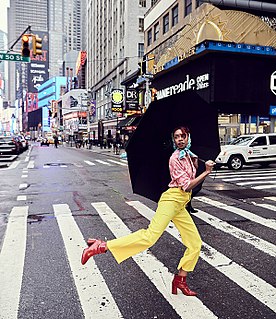A Quote by Carl Sandburg
Related Quotes
I really don't like that modern notion of 'I don't need anyone.' I see a lot of young women feeling they have to be that way, they have to be hard, in a way. And what does that bring them? They're just going to be lonesome. They're going to be, at best, lonesome and capable, at worst, lonesome and hard. And is that what we want? No.
So, now I shall talk every night. To myself. To the moon. I shall walk, as I did tonight, jealous of my loneliness, in the blue-silver of the cold moon, shining brilliantly on the drifts of fresh-fallen snow, with the myriad sparkles. I talk to myself and look at the dark trees, blessedly neutral. So much easier than facing people, than having to look happy, invulnerable, clever.
There was just one moon. That familiar, yellow, solitary moon. The same moon that silently floated over fields of pampas grass, the moon that rose--a gleaming, round saucer--over the calm surface of lakes, that tranquilly beamed down on the rooftops of fast-asleep houses. The same moon that brought the high tide to shore, that softly shone on the fur of animals and enveloped and protected travelers at night. The moon that, as a crescent, shaved slivers from the soul--or, as a new moon, silently bathed the earth in its own loneliness. THAT moon.





































